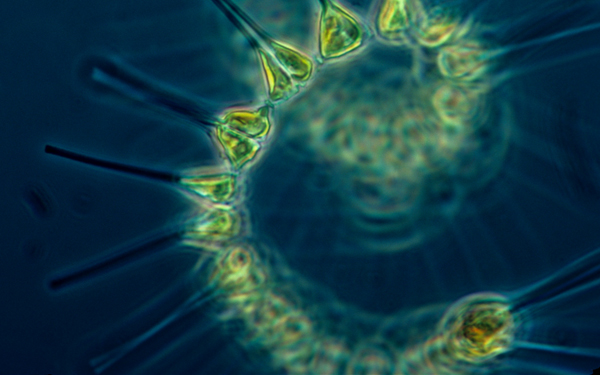Uncoupling of Autotrophy and Heterotrophy: Effects of the Deepwater Horizon Oil Spill on Microbial Food Webs
A UWF Center for Environmental Diagnostics and Bioremediation project funded by the Florida Institute of Oceanography.

PI: Wade H. Jeffrey
Oil and its constituents are primarily degraded by native microorganisms with abiotic processes being less important. Oil provides a high amount of organic material available to support bacterioplankton growth, the specific source of carbon, however may select for specific groups of bacterioplankton – shifting the microbial community structure which may alter other biogeochemical cycles as well. The project addresses Category 2 – conduct baseline studies and impact assessments to provide the basis for long term monitoring. Specifically, this study will provide baseline studies on microbiological and geochemical processes governing the degradation of oil and affected by oil and its constituents in pristine and oil-contaminated Gulf of Mexico near shore environments. Phytoplankton and bacterioplankton are the base of marine food webs; phytoplankton fix inorganic carbon to organic carbon and bacterioplankton are responsible for cycling significant (often 50% or more) of the organic carbon through the microbial loop. Changes in this dynamic have the potential to disrupt microbial biogeochemical cycles and significantly alter microbial food webs with potential cascading effects through higher trophic levels. Common bioremediation strategies often include the addition of inorganic nitrogen and phosphate.
How do increases in carbon (oil) and N & P (from bioremediation nutrient additions) change trophic interactions and dynamics? Is the growth of the organisms responding to oil controlled by bottom up (nutrients) or top down (grazing & viruses) forces? Elevated concentrations of oil in the Gulf of Mexico system presents a huge reservoir of nutrients that will likely have ancillary effects on the entire microbial cycling in affected systems.
This project represents a collaborative effort between the University of West Florida and Florida A& M University. Research areas include Pensacola Beach, near the University of West Florida and a site already contaminated by oil, as well as Apalachicola (currently uncontaminated) and Grand Bay, MS (contaminated). All three sites have been sampled extensively prior to the spill. Immediate sampling needs to be done in uncontaminated waters in the Gulf of Mexico to establish baseline trophic interactions. These initial assays will be followed by sampling in contaminated waters as well as via experimental manipulation by adding oil and inorganic nutrients to samples to monitor changes in microbial community foodwebs (i.e. phytoplankton and bacterioplankton interactions) and community structure and dynamics in response to oil spill components. Research proposed herein will enhance our ability to better understand the biogeochemical effects and ultimately the ecological response to the Deepwater Horizon disaster.


